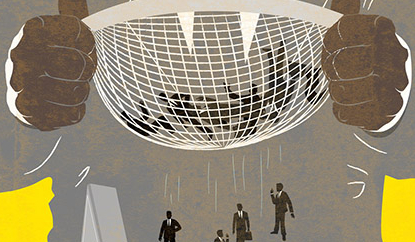英文法律词典 T-52
|
TRIAL LIST. A list of cases marked down for trial for any one term. TRIBUNAL. The seat of a judge; the place where he administers justice; but by this term is more usually understood the whole body of judges who compose a jurisdiction sometimes it is taken for the jurisdiction which they exercise. 2. This term is Latin, and derives its origin from the elevated seat where the tribunes administered justice. TRIBUTE. A contribution which is sometimes raised by the sovereign from his subject, to sustain the expenses of the state. It is also a sum of money paid by one nation to another under some pretended right. Wolff, §1145. TRINEPOS. This term was used among the Romans to denote the male descendant in the sixth degree in a direct line. It is still employed in making genealogical tables. TRINITY TERM, Eng. law. One of the four terms of the courts; it begins on the 22d day of May, and ends on the 12th of June. St. 11 G. IV., and 1 W. IV., c. 70. It was formerly a movable term. TRIORS, practice. Persons appointed according to law to try whether a person challenged to the favor is or is not qualified to serve on the jury. They do not exceed two in number without the consent of the prosecutor and defendant, or some special case is alleged by one of them, or when only one juror has been sworn and two triors are appointed with him. Co. Litt. 158 a; Bac. Ab. Juries, E 12. 2. Where the challenge is made to the first juror, the court will appoint two indifferent persons to be triors if they find him indifferent he shall be sworn, and join the triors in determining the next challenge. But when two jurors have been found impartial and have been sworn, then the office of the triors will cease, and every subsequent challenge will be decided upon by the jurymen. If more than two, jurymen have been sworn, the court may assign any two of them to determine the challenges. To the triors thus chosen no challenges can be admitted. 3. The following oath or affirmation is administered to them: "You shall well and truly try whether A B, the juror challenged, stands indifferent between the parties to this issue, so help you God" or to this you affirm. The trial then proceeds by witnesses before them; and they may examine, the juryman challenged on his voire dire, but he cannot be interrogated as to circumstances which may tend to his own disgrace, discredit, or the injury of his character. The finding of the triors is final. Being officers of the court, the triors may be punished for any mishehaviour in their office. Vide 2 Hale, 275; 4 Bl. Com. by Chitty, 353, n. 8; Tr. per Pais, 200; 1 Chit. Cr. Law, 549, 450; 4 Harg. St. Tr. 740, 750; 15 Serg. & Rawle, 156; 21 Wend. 509; 2 Green, 195. |








